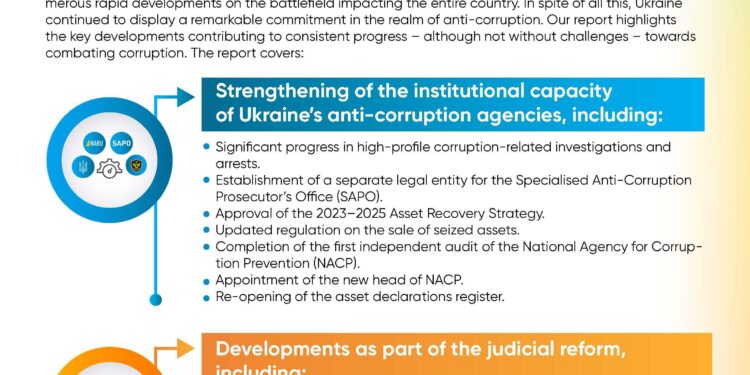The Group of States against Corruption (GRECO), a Council of Europe body, has issued a series of recommendations aimed at strengthening anti-corruption measures within Liechtenstein’s government, police force, and the office of the Head of State. The report highlights key areas where transparency and accountability can be enhanced to better align with international anti-corruption standards. GRECO’s findings come as part of ongoing efforts to bolster integrity and public trust in Liechtenstein’s institutions, underscoring the principality’s commitment to combating corruption at all levels of governance.
GRECO Calls for Strengthened Anti-Corruption Measures in Liechtenstein’s Government Bodies
In a recent evaluation, the Group of States against Corruption (GRECO) has highlighted the urgent need for Liechtenstein to enhance its anti-corruption framework across key government institutions, including its police force and the office of the Head of State. The recommendations focus on increasing transparency, strengthening oversight mechanisms, and improving the accountability of public officials to curtail any risks of corrupt practices. GRECO emphasizes that despite recent progress, institutional reforms must be accelerated to align with international standards and effectively deter corruption in the principality’s governance.
Key areas identified for immediate reform include:
- Improved Asset Disclosure: Mandatory, comprehensive declarations for senior officials to mitigate conflicts of interest.
- Enhanced Internal Controls: Establishing stronger internal audit capacities within government bodies, particularly in law enforcement agencies.
- Policy Transparency: Clearer guidelines and public access to policy decisions affecting anti-corruption efforts.
| Institution | Current Status | GRECO’s Key Recommendation |
|---|---|---|
| Government Bodies | Partial asset disclosure system | Mandatory full asset declarations |
| Police | Limited internal oversight | Strengthen internal audit units |
| Head of State’s Office | Minimal transparency policies | Implement clear transparency guidelines |
Enhanced Oversight and Transparency Urged for Police Operations to Combat Corruption
The urgent call for enhanced oversight mechanisms within Liechtenstein’s police forces aims to bolster accountability and restore public confidence. GRECO points to the need for implementing robust internal controls and independent review bodies that operate transparently and free from political influence. Such structures are crucial in ensuring that police operations adhere strictly to legal and ethical standards, thereby minimizing opportunities for corrupt practices to take root.
Among the recommended measures, special emphasis is placed on improving transparency through regular public reporting and the establishment of clear protocols for handling misconduct allegations. These steps are designed to foster a culture of openness and reinforce the rule of law. Key recommendations include:
- Creation of an autonomous police oversight board with civilian representation
- Mandatory disclosure of conflict-of-interest declarations for officers in leadership roles
- Enhanced whistleblower protection frameworks to safeguard informants
- Regular public audits and publication of anti-corruption progress reports
| Oversight Aspect | Proposed Reforms | Expected Impact |
|---|---|---|
| Governance | Independent oversight board with civilian members | Increased impartial accountability |
| Transparency | Publicly available misconduct reports | Greater public trust and engagement |
| Internal Controls | Conflict-of-interest declarations | Reduction in favoritism and abuse |
| Whistleblower Protection | Legal safeguards and anonymous reporting | More effective corruption detection |
Council of Europe Recommends Clearer Accountability Frameworks for the Head of State
The recent evaluations by GRECO emphasize the necessity of establishing transparent and robust accountability mechanisms for the highest office in Liechtenstein. While the Head of State holds significant constitutional powers, the absence of clear oversight has raised concerns regarding potential vulnerabilities to corruption and misuse of authority. To address these risks, the Council of Europe has called for the introduction of defined protocols that regulate the conduct, financial disclosures, and decision-making processes associated with this role.
A structured framework would involve:
- Mandatory asset declarations and regular audits conducted by independent bodies
- Clear procedural guidelines for conflict of interest management and recusal
- Enhanced transparency in public engagements and official expenditures
- Strengthened cooperation between judicial authorities and oversight institutions
| Accountability Measure | Current Status | Recommended Action |
|---|---|---|
| Asset Disclosure | Voluntary and non-standardized | Mandatory annual declarations verified by an independent authority |
| Conflict of Interest Policy | Inadequate formal guidelines | Adoption of clear recusal and reporting procedures |
| Audit Mechanisms | Limited external audits | Regular external audits with public reporting |
Key Takeaways
As Liechtenstein faces mounting pressure to strengthen its anti-corruption framework, GRECO’s recommendations mark a critical step toward greater transparency and accountability within the principality’s government, police, and Head of State. The Council of Europe’s insistence on reform underscores a broader commitment to upholding the rule of law and curbing practices that undermine public trust. Moving forward, the effectiveness of these proposed measures will depend largely on Liechtenstein’s willingness to implement meaningful changes and foster a culture of integrity at all levels of governance.
















